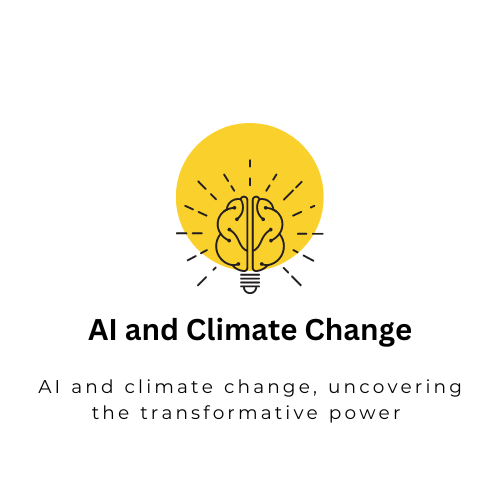In a world grappling with the challenges of climate change, technology emerges as a potent ally in the fight for a sustainable future. Artificial Intelligence (AI) is the game-changer that can revolutionize climate change mitigation. This exhaustive guide explores the dynamic synergy between AI and climate change, uncovering the transformative power AI brings to environmental conservation.
The Convergence of AI and Climate Change
Artificial Intelligence (AI) simulates human intelligence processes in machines. With data analysis and insights, AI emerges as an essential tool against climate change. From forecasting extreme weather to optimizing energy usage, AI presents innovative solutions for complex challenges.
Harnessing Big Data for Climate Insights
AI's integration with big data reshapes climate science. By analyzing data from satellites, weather stations, and other sources, AI augments our understanding of climate patterns. This partnership helps predict climate trends, assess environmental risks, and devise mitigation strategies.
Advancing Renewable Energy with AI
Renewable energy, such as solar and wind power, curbs greenhouse gas emissions. AI enhances their efficiency by predicting energy generation and consumption patterns. AI adjustments and predictive maintenance optimize energy grids, rendering renewables more reliable.
AI-Driven Smart Agriculture
AI-powered smart agriculture transforms food production. Analyzing soil health, weather, and crop growth data, AI enables precise farming. This minimizes resource wastage, maximizes yield, and fosters sustainable land management.
Navigating Climate-Induced Disasters
AI's predictive prowess aids disaster management. As climate-related disasters surge, AI aids early detection and rapid response. From hurricanes to wildfires, AI assists in evacuation, resource allocation, and damage assessment.
Promoting a Circular Economy through AI
AI streamlines the circular economy concept—minimizing waste via resource reuse and recycling. By optimizing waste collection and identifying recyclables, AI fosters sustainable practices, minimizing wastefulness.
AI's Role in Climate Modeling
AI expedites climate modeling, crucial for understanding global warming impacts. Analyzing intricate climate data, AI generates precise projections. These models inform policymakers, aiding proactive decisions.
Overcoming Implementation Barriers
Despite AI's potential, barriers exist. Data privacy, technological constraints, and cross-disciplinary collaboration are hurdles. Addressing these requires collective action from governments, industries, and researchers.
FAQs
How does AI aid climate change mitigation?
AI aids climate change mitigation via data analysis, energy optimization, smart agriculture, disaster management, and fostering sustainable practices.
Can AI predict natural disasters?
Yes, AI predicts natural disasters by analyzing historical data and weather patterns, enabling swift response and efficient resource allocation.
How does AI support the circular economy?
AI supports the circular economy by optimizing waste management, identifying recyclables, and enhancing resource efficiency.
What challenges hinder AI adoption for climate solutions?
Challenges include data privacy, technology limitations, and the need for collaboration. Overcoming these requires holistic approaches.
Are AI-generated climate models accurate?
AI-generated climate models are highly accurate due to data analysis capabilities. These models offer valuable insights into addressing climate change.
How can governments promote AI in climate initiatives?
Governments promote AI in climate initiatives by investing in R&D, creating supportive regulations, and fostering public-private partnerships.
Conclusion
AI's collaboration with climate change is revolutionary. From climate predictions to disaster management and sustainable practices, AI's potential for positive change is unparalleled. Embracing AI-powered solutions provides hope for a sustainable, resilient future.


.png)
.png)
.png)










.png)



0 Comments